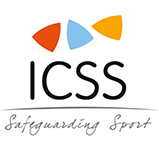Sport’s dilemma when it comes to commercialisation and integrity
Media ReleasesEarlier this month, I travelled to London to take part in the Leaders in Sport and the ASPIRE4SPORT summits.
The events gathered some of the finest minds from all corners of the sports industry. High-profile names talked on-stage about emerging trends and challenges the industry is facing. Numerous keynotes and panels discussed how digital technology is changing sport, how fans are more ‘engaged’ than ever before and how social media is ‘disrupting’ what we watch and how we consume sport.
For me though, two panels particularly stood out.
Firstly, during a session covering governance in sport, IAAF President, Seb Coe, gave a fascinating insight into the experiences and lessons he learned during the governance reform process the IAAF has undertaken over the last 24 months, the challenges he has faced leading a 214-member organisation and what the future holds for athletics and many other sports.
Whilst the resulting headlines following the session focussed around new formats and potential changes for athletics on the track, the acknowledgment that these changes are not possible without the sweeping governance reforms the IAAF has made off the track following its integrity crisis is a point that particularly resonated.
Having spent an entire career working with NGOs and both the public and private sector in the field of anti-corruption and ethics, I have seen first-hand the significant benefit and positive impact of leaders who are committed to good governance, compliance and anti-corruption, as well as how their efforts can positively transform public opinion and inspire greater trust in a particular sector or industry.
The IAAF is just one of a handful of governing bodies that have taken a lead in reforming their governance over recent years, in comparison to many other case studies and innovative approaches to corporate governance and compliance that exist in the public sector and commercial world.
Indeed, for all the recent talk of digital ‘disruption’, commercial transformation and how the likes of Amazon, Google and Apple could soon be entering the sports rights marketplace, there is no doubt that the pace of change and the ever-increasing commercialisation of the sports industry has now created a significant dilemma when it comes to protecting the integrity of sport.
On one hand, and as former Disney CEO and now owner of Portsmouth Football Club, Michael Eisner, so eloquently pointed out, many sponsors and organisations have never been so attracted to investing in sport’s unique storytelling power. However, on the other, we are living at a time when the governance of sports organisations is under more scrutiny than ever before.
As a result, modernising and professionalising existing governance and compliance measures in sport is critical to its future success – particularly if the likes of Amazon, Google and Facebook (who have their own compliance measures to adhere to) are going to enter the sports marketplace.
Indeed, the term ‘collective action’ is something I have used on numerous occasions and one I passionately believe in.
Only by bringing together specialist knowledge and professional, independent expertise from a range of different sectors – including business, government and civil society – can we ensure that the sports industry is less vulnerable to corruption and fraud and has modern and ‘fit for purpose’ governance structures and compliance measures in place that work in the very best interests of all its members and all those involved in the sports industry.
Since joining the ICSS as Group CEO in June 2016, we have made great strides as an organisation and have several exciting announcements in the sport integrity space coming up over the coming months.
I hope you will support these upcoming projects, as well as our ongoing work with partners across all sectors, to help strengthen and safeguard sport.
If you or your organisation is interested in learning more about the ICSS Sport Integrity services, advice and training and would like to speak to one of the ICSS team, please visit http://www.theicss.org or contact info@theicss.org

